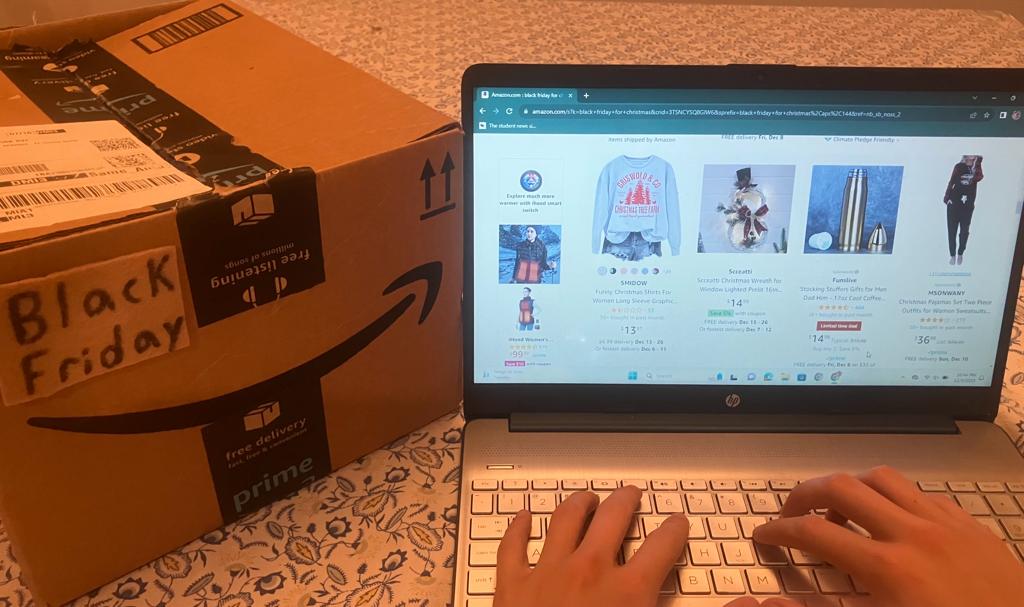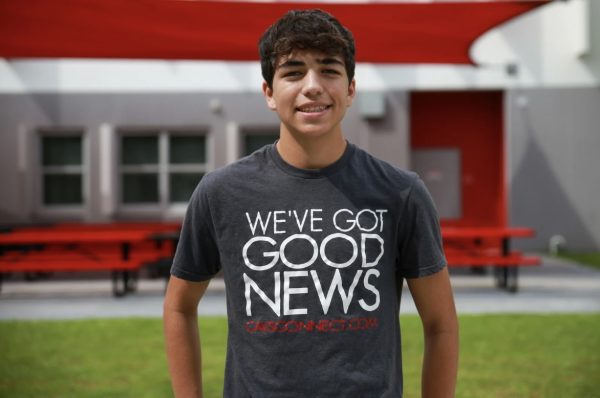As the holiday season quickly approaches, consumers look toward shopping as their savior. With the pressure of gift giving and material indulgence combined, shopping skyrockets. However, Black Friday no longer consist of the pushing, shoving and snatching it once did. Throughout the course of its history, Black Friday, Cyber Monday and holiday deals have changed with the COVID pandemic, leaning more towards online shopping.
The quarantine caused by the COVID-19 outbreak in 2020 resulted in the closing of stores, which in turn led to high unemployment rates. To combat the lack of in-person stores, a surge of online selling occurred.
Companies took advantage of this time to improve the comfort of online shopping, including increased availability of choice variety, customer reviews to help shoppers and a lack of parking troubles. With these improvements during the pandemic, a good number of shoppers chose to continue their new way of shopping online, the first wave of many. With purchases increasing six to 10 percent every two months, online shoppers have yet to slow down.
“I have always shopped online for Black Friday deals. This year, I bought myself an electric scooter this year, because I saw its low prices and wanted to take advantage. I lost my electric bike this year and wanted another way to get around, so I looked on Amazon and found a great offer. I would say the sales were better this year,” freshman Bryne Corbin said.
With online shopping proving to be more convenient for customers, in person shopping dropped one and a half million people, while online shopping received four million more shoppers on Black Friday. This distinguished day of deals had increase of sales by 7.5% from last year, one of the many instances seen affected by the newfound benefits of online shopping.
“I shopped on Black Friday for a pair of Airpod Pro Max’s for 200 dollars, saving hundreds. This year, I found Black Friday to be different, with less lines with shoving at stores and more people shopped online. I think for companies to advertise themselves better they should also continue with billboards were people can see it while driving,” freshman Erick Delvalle said.
Giving shoppers only two days of a bridge between deals, Cyber Monday left a deeper hole in consumer’s wallets. This day of deals has begun to become more popular for consumers, with an increase of 9.6% from last year. As shoppers became more accustomed to scouring the internet for deals, the e-commerce sales increased by 44% since 2020. Cyber Monday has turned into the biggest day for online shoppers looking for sales, with its 12 billion dollars produced surpassing Black Friday’s 9.8 million.
“On average, I spent around 250 dollars on both Black Friday and Cyber Monday. I shopped a lot at Sephora for Christmas presents, and also at Altar’d State for the many buy-one-get-one-free deals. In my opinion, Sephora was a zoo but a controlled zoo, you weren’t standing outside for hours,” freshman Vivian Pritchett said.
The amount of sales present caused a tight competition between major companies. To stand out, major companies like Amazon, Walmart, Target and JCPenney had to drop their prices extremely low this year with record breaking sales for these deals. For instance, Amazon shoppers have saved 70% more in 2023 during this shopping craze compared to the previous year. The lofty profit made by these companies allowed them to continue lowering their prices while gaining benefits themselves.
“On Black Friday, I spent around $200 on clothes and makeup from companies like Sephora, Ulta, Garage and Princess Polly. There were many stores to choose from because many stores had sales and it has hard to pick. I ended up picking stores that had little shipping fee,” sophomore Sofia Abril said.
Advertising for companies has also continued to lean towards a virtual approach, as advertisements seduced buyers in the apps they used. Throughout their history, companies have made deals with outside sources to extend their reach on the markets, and to win said competition, these advertising sources have varied and multiplied. For example, Fabletics invested in ads along sources like YouTube, national TV and over 250 media properties to emphasize their sales.
As consumerism continues to be a growing trend, it maintains the major increase in sales during these holidays. Although Black Friday and Cyber Monday have passed, while many shoppers still looking to shop for low prices, the holiday deals are still available for a limited time.










